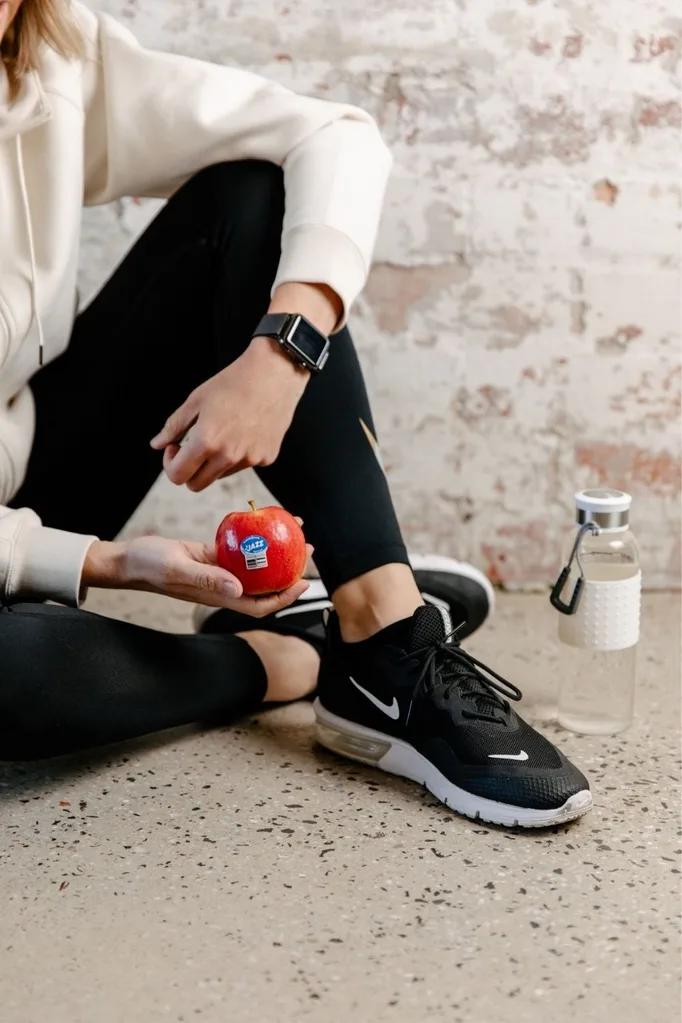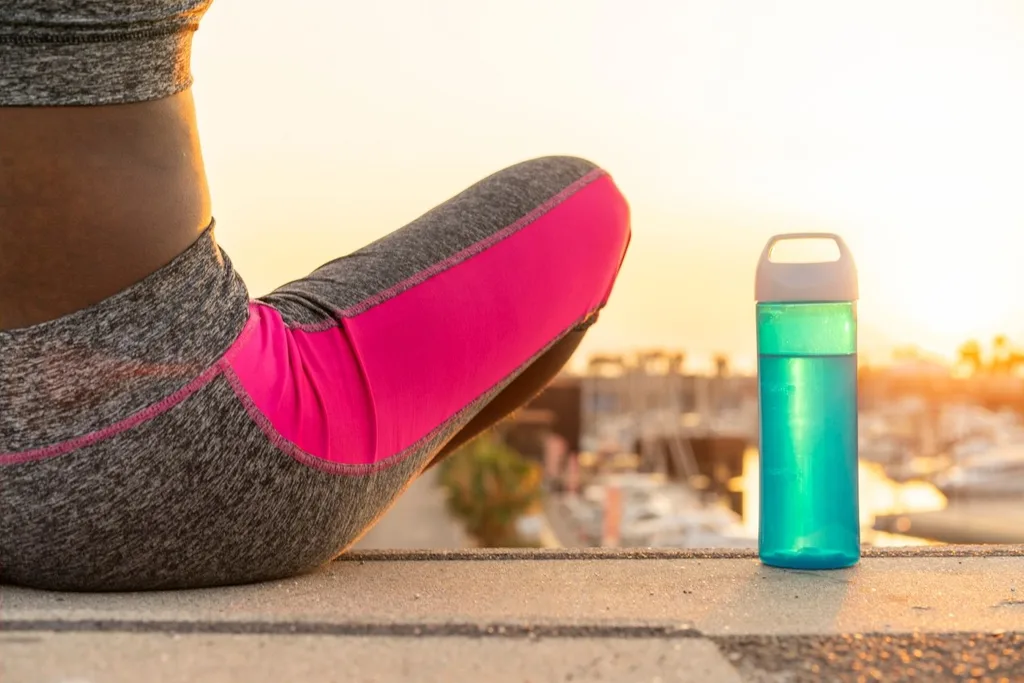When it comes to fitness, what you choose to put into your mouth is just as important as how you move your body, making the two a powerful team for good health.
So should you workout on an empty tummy – or top up with fuel? Are carbs a go-to or a no-no? And how soon after a workout should you eat?
Here, your guide to nourishment before, during and after exercising…
1. Fuel Up Before You Sweat
Kilojoules are a unit of energy, so fuelling your body with them before working out is vital, and while fasting may be all the rage, avoiding food could leave you depleted of the energy you need to train.
Accredited Practising Dietitian Joel Feren says the science still overwhelmingly supports fuelling appropriately before training. “You’ll likely train harder and have a more efficient workout,” he explains. “Great pre-workout snacks include cheese and crackers, milk, yoghurt, muesli bars, toast with jam or honey, and fruit such as apples. Apples are awesome!”
Our pick of the bunch? Juicy, JAZZ™ Apples. They’re packed with fibre, vitamins B and C and potassium and low GI, so they’ll keep you full for longer. “This means that the carbohydrates are slowly broken down into glucose (the body’s preferred fuel source) in the bloodstream,” adds Feren. And they’re practical – being compact and robust, they will go the distance in your gym bag while retaining their crunch. With an effervescent, sweet/tart flavour they’re the perfect on-the-go snack to leave you feeling refreshed and nourished at the end of a sweat session.

2. Time Your Pre-Workout Snack Right
“Having a meal 3-4 hours before a bout of activity is best practice,” advises Feren. “But it would be best if you topped up with a small snack closer to working out to ensure your glycogen stores (energy reserve) are topped up.”
3. Don’t Skip The Carbs
Don’t believe the myth that carbohydrates are the enemy. According to Feren, incorporating the right kind of carbs could be the key to your fitness goals.
“Carbohydrates are the body’s preferred fuel source,” he explains. “Ensuring we have a steady supply of carbs will allow us to not only function at our best but also get the most out of our workouts.”
Instead of simple carbs found in sweets and processed foods, opt for complex carbs found in whole grains, beans, vegetables and fruits. They’ll keep you full for longer, help stabilize your blood sugar levels and give your body the vitamins and minerals it needs to keep running at its best.
4. Stay Hydrated
Drinking enough water is essential for our health and wellbeing, even more so when exercising, as we lose fluids through sweat. To avoid dehydration, Feren recommends, “drinking to thirst before and during exercise.”
When it comes to post-workout water, Feren says we should be drinking 1.5L for every kilogram of body weight lost during a workout. “And if you’re a long-distance runner, you’ll need to get on the waters more than you would after a 30 minute Pilates exercise.”

5. Cool Down And Re-Fuel
After a workout, your body is in a state of recovery. And while you may feel too revved up to actually have much of an appetite, eating a healthy snack will help you get the nutrients you need to restore your energy and repair your muscles.
“Prioritising hydration as well as carbs and protein is the order of the day,” says Feren. “Great options include fruit smoothie, chocolate milk, sandwiches with a protein source like cheese or tuna as well as fruit salad and yoghurt.”
6. Eat Real Food
Despite their flashy labels, manufactured ‘fitness’ products like energy bars and protein shakes are no substitute for eating real, whole foods from the earth.
“Eating whole foods provide us with so much more than just protein, fats and carbs. They contain a vast matrix of nutrients like antioxidants, vitamins and minerals. You won’t get the same nutrient profile from a manufactured product,” says Feren.
“Many believe that you need a protein powder after working out. But you could instead have a glass of chocolate milk or yoghurt and an apple, which will deliver a great mix of carbs and protein and key vitamins and minerals and antioxidants to assist with inflammation. Eating whole foods over something processed is always going to be better for you.”
Brought to you by Montague JAZZ™ Apples Australia.










